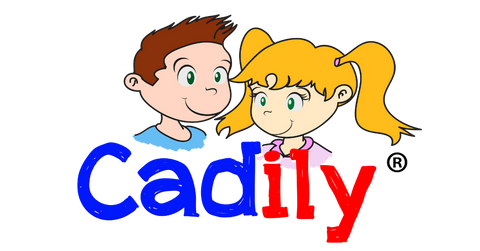Even though kids don’t have to concern themselves with the stress of paying bills or everyday pressures that come from working and running a household, children do have to sort through complicated thoughts and emotions that they experience in their daily lives. Even children raised in stable homes with loving parents need to be taught to talk about their feelings. Every child needs to learn how to express himself or herself -- hence the importance of at-home therapy activities for kids.
As a parent, you are your child’s first and most important teacher. Part of your responsibilities includes teaching emotional intelligence. How do you fit this in when you need to help your child learn spelling words, pack the next day’s lunches, and drive to baseball practice?
In some cases, you may find it necessary that your child attends therapy sessions to learn how to discuss his or her feelings. While your child practices math problems outside of school and practices dribbling outside of soccer practice, it makes sense that emotional training continues outside of therapy. Instead of continuously asking your child about his or her feelings, why not use games, hobbies, or sports to help your child sort out emotions? Here are some ideas of therapy activities for kids.
Games
One of the best ways to teach your child is by playing games. Even silly games with seemingly no educational value can teach a child to take turns, handle disappointment, win graciously, and communicate effectively.
Even easy games or puzzles that require little interaction will provide a time for you to talk with your children about their thoughts and feelings. Playing games while in the car will make travel time pass by faster and will keep your child off screens. Role-playing games can also be a fun way for children to learn how others perceive them and teach them empathy at the same time.
There are also some games that are explicitly designed to help your child sort through their emotions. One such product is Cadily’s newest "Sentence Completion Cards". This game was created to complement traditional therapy, such as cognitive-behavioral therapy. It will empower your child to share his or her thoughts and feelings while being entertained at the same time.
This Is Me is a sentence completion card game that can be played on its own, or in combination with other games such as Jenga or Twister. The game comes with 44 beautifully-designed cards that ask kids to finish such statements such as “I want to change . . . “ or “When I grow up . . . “
Playing a game is a great way to spend time and have a conversation with your child, while also having fun.
Hobbies
For some children, traditional games may cause anxiety, or they may create arguments about not wanting to play by the rules. If your game-playing sessions end in disaster, you may consider using a hobby to help your child express his or her emotions.
Arts and crafts are great for a creative child to learn how to create with his hands while allowing him to address and overcome challenges. Your child can develop fine-motor skills while learning how to problem solve to get out of tricky situations that often occur during a crafting project.
Encouraging your child to become a collector will also help a child focus and channel his or her energy on something enjoyable. Your child will learn to group and organize items with his or her collection. Collecting also helps people pay attention to details. Whether the child collects seashells or rocks, insects or trading cards, children can learn to entertain themselves while they concentrate on their collections.
Children can also learn about their emotions with outdoor activities. They can learn how to deal with disappointment when the weather keeps them from going outside. They can learn patience by planting a few flower or vegetable seeds in a garden. They can learn to appreciate the stillness that comes with bird watching.
Studying nature can also be a helpful activity when discussing feelings. You can discuss putting problems in perspective as you gaze at the vastness of the stars and solar system. You can learn about how weather patterns can be used to help describe emotions. Ask your child such questions as “What feelings do you think of when you see clouds?” or “What other things scare you besides thunder?”
Sports
For some parents and kids, sports are a favorite therapeutic activity. Studies continuously show how important it is that children and adults participate in physical activity each day. Sports are a great way to get kids outside and moving. Even if they’re not playing a team sport, just playing outside can be a therapeutic way for children to release energy and to express emotion.
Besides being good for your physical and mental health, sports and outdoor physical activities provide a way for parents to talk with their children about competition, good sportsmanship, the value of hard work, and the pain of defeat.
Incorporating therapy and games for kids
Many modern parents are overwhelmed. When both parents work, there is precious little time to assist children in their academic, social, and mental development, especially when you still need to cook a nutritious dinner and help with homework. Instead of having a list of activities to check off each night, why not try to complete several tasks at once?
Use games, hobbies, and sports as a jumping-off point to discuss feelings and emotions. If you need an additional resource to compliment your child’s CBT sessions, check out our new sentence completion game for kids. Our kids have had a blast playing the game. They like talking about themselves and what they think and feel. It also gives you a chance to share your feelings with your children.
Check it out, and let us know how it goes!










